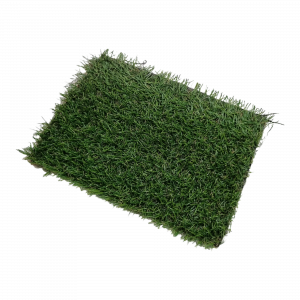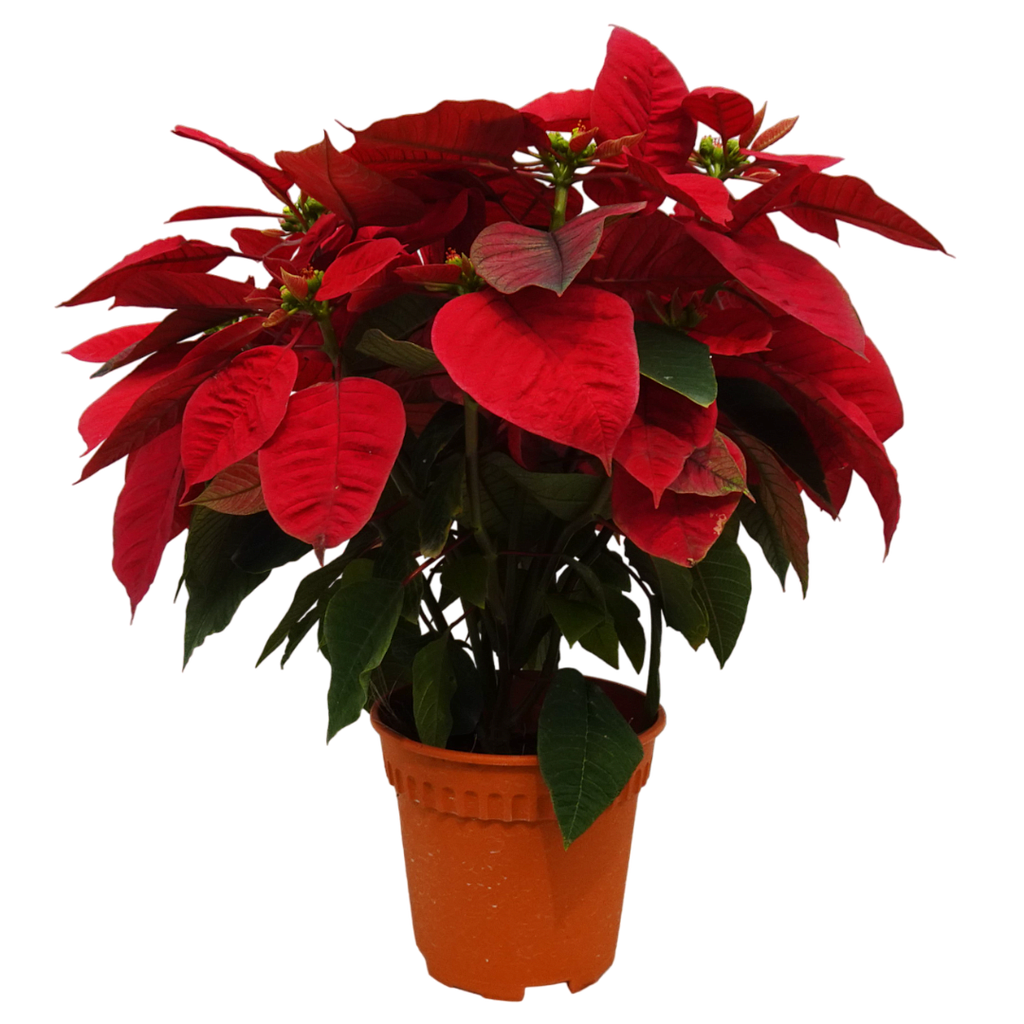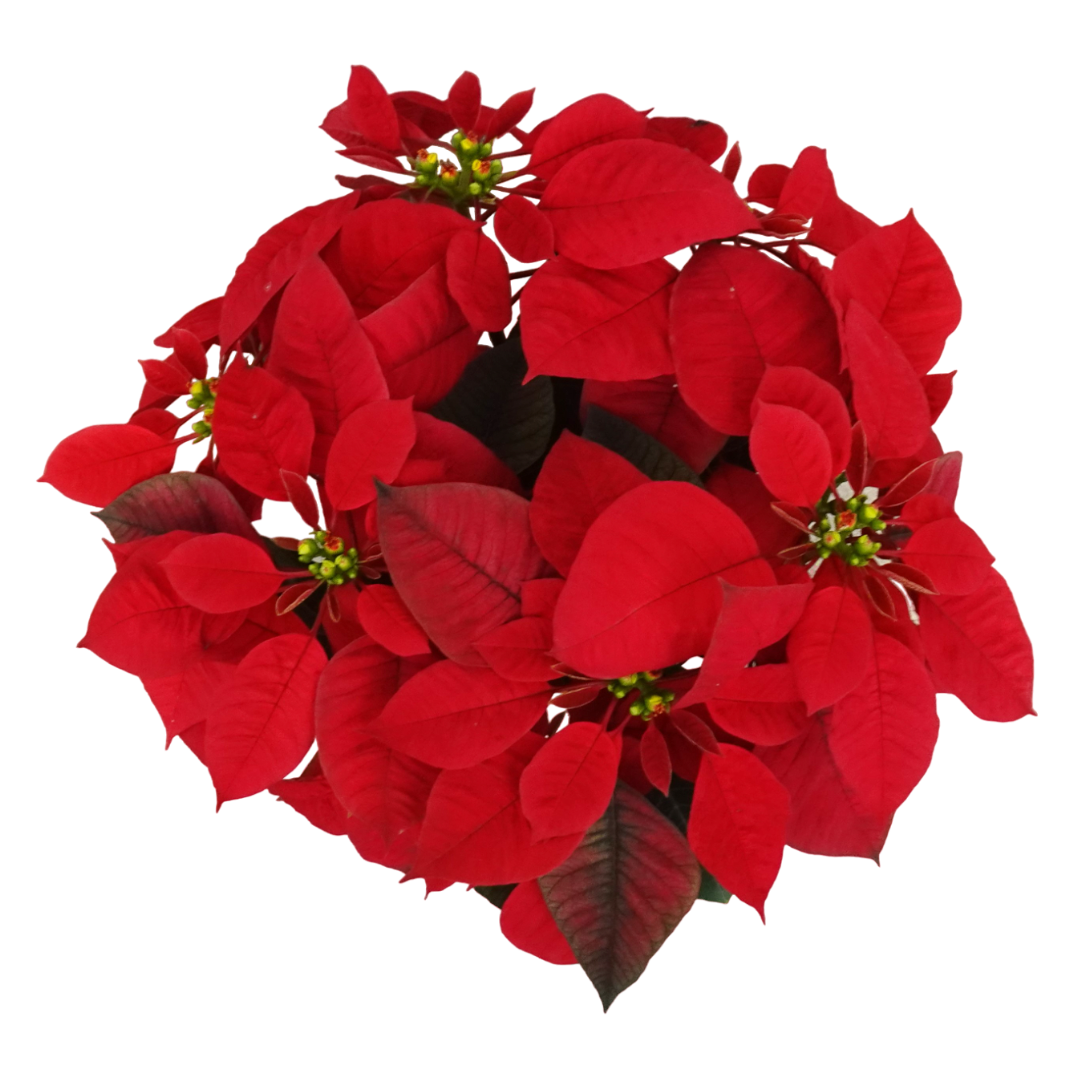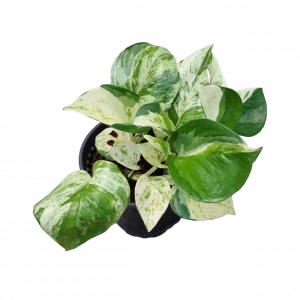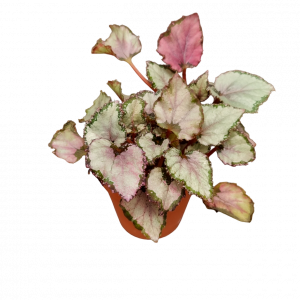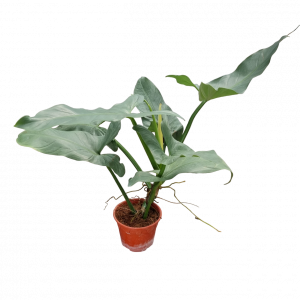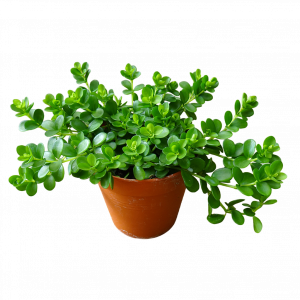Euphorbia pulcherrima, commonly known as Poinsettia, is a striking flowering plant that belongs to the Euphorbiaceae family. Native to Mexico and Central America, this perennial shrub is particularly famous for its vibrant bracts, which are often mistaken for flowers, that can be found in shades of red, pink, white, and even marbled varieties. The actual flowers are small and yellow, situated in the centre of the bracts. Poinsettias can grow up to 1.2 metres in height and are cherished for their festive appearance, making them popular during the holiday season as well as for decorative use in gardens and landscapes.
Plant Care Guide
Light: Poinsettias thrive in bright, indirect sunlight. Ideally, they should receive around six hours of light each day. Too much direct sunlight can scorch the leaves, while insufficient light can lead to leggy growth and fewer blooms.
Watering: Water regularly, allowing the top 2.5 centimetres of soil to dry out before the next watering. Poinsettias are sensitive to overwatering, so ensure that the pot has good drainage to prevent root rot.
Feeding: Apply a balanced fertiliser to promote healthy growth and vibrant bracts.
Pruning: Prune back any dead or yellowing leaves to encourage bushier growth and maintain a tidy appearance. After flowering, you can trim the stems to promote new growth for the next blooming cycle.
Pest Management: Monitor for pests such as aphids and mealybugs. Regular inspections and the use of insecticidal soap can help manage any infestations effectively.
Lighting: Bright Filtered Light
Watering: Water Moderately
Watering Frequency: Every 2-4 Days
Aphids: Aphids are tiny, pear-shaped insects that range in color from green to yellow to black. They feed on the sap of plants using their sharp, piercing mouthparts and can cause stunted growth, curling leaves, and other damage. They reproduce quickly and can form large colonies, making them a common pest in gardens and greenhouses..
Mealy bugs: Mealy bugs are small insects that feed on plant sap and can cause damage and transmit diseases. To control them, you can physically remove them, introduce natural enemies, or use insecticidal soap or neem oil. It’s important to monitor plants regularly and act quickly to prevent damage..
THE MEDIUM SOIL CO Bio-Plus Granular Fertiliser NPK 8-8-8+3MgO: Every 3 Months.

